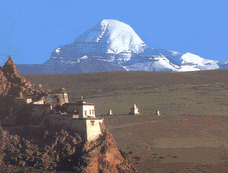For many centuries, Ladakh evolved according to its own values. Then, in 1974, the area was suddenly thrown open to the outside world. At that time the Indian government started a process of planned development, which included tourism and the introduction of Western-style education, agricultural chemicals and dependence on transport and fossil fuels for all vital needs. This has brought many changes to Ladakh - including junk food, plastic consumer goods, toxins such as DDT and asbestos, pollution and unemployment. Along with the mass media, these changes have also fostered the impression that life in the West is infinitely better than in Ladakh.
http://www.isec.org.uk/articles/mindful.pdf
Renewable Energy
ISEC has played a central role in reducing the Ladakhis' dependence on imported and expensive fossil fuels.
Working closely with the Ladakh Ecological Development Group (LEDeG) - an indigenous NGO we founded in 1978 - we have developed and demonstrated numerous small-scale, energy-saving technologies, most of which can be built and maintained locally. These include:
- Hydraulic ram pumps for lifting irrigation and drinking water.
- Solar room-heating systems to combat the freezing winters.
- Solar water heaters and cookers.
- Photovoltaic power for lighting.
- Micro-hydro installations and small wind turbines for electricity production.


No comments:
Post a Comment